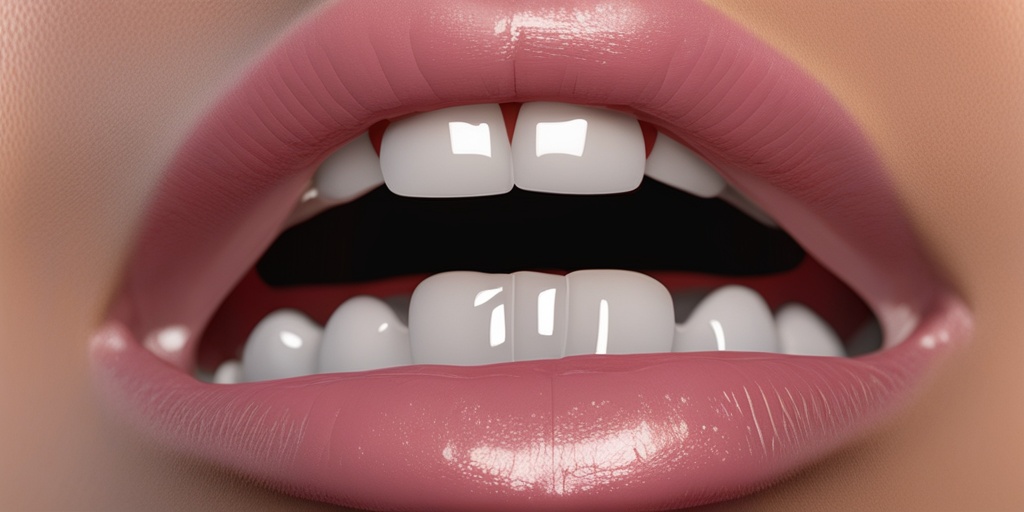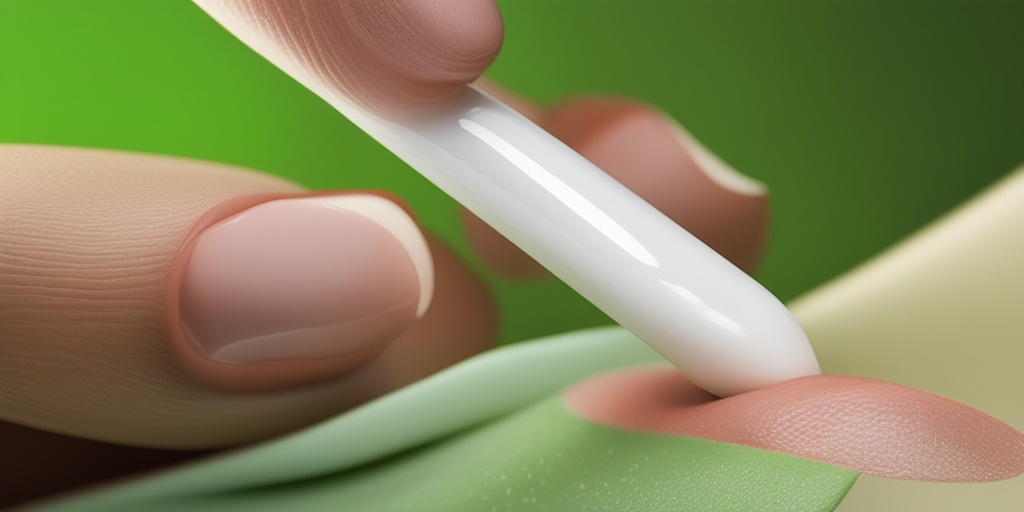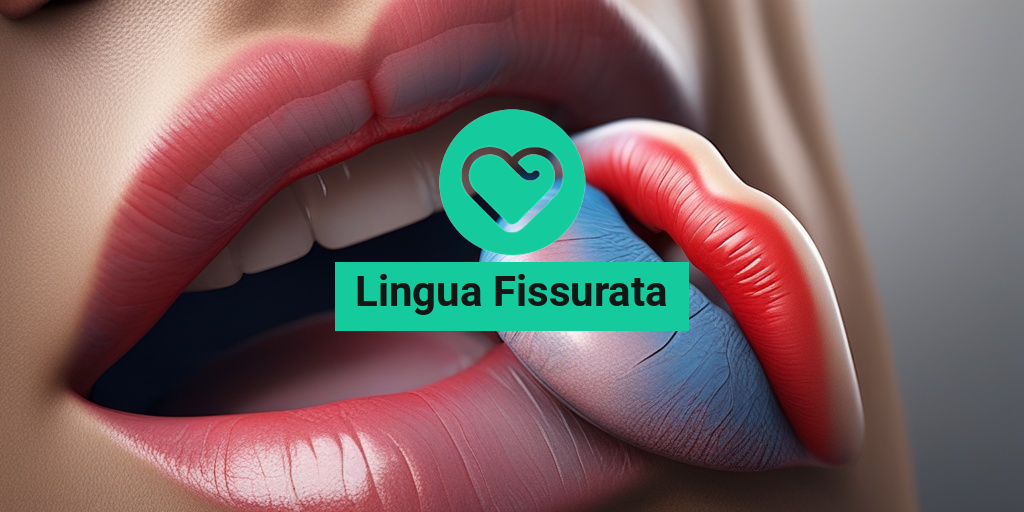What Is Lingua Fissurata?
Lingua fissurata, also known as fissured tongue, is a benign condition characterized by deep grooves or fissures on the surface of the tongue. These grooves can be shallow or deep, and may be accompanied by other symptoms such as pain, burning, or sensitivity. The exact cause of lingua fissurata is unknown, but it is believed to be related to factors such as genetics, nutrition, and oral hygiene.
Prevalence of Lingua Fissurata
Lingua fissurata is a relatively common condition, affecting approximately 5-10% of the global population. It can occur at any age, but it is more common in older adults. In some cases, lingua fissurata may be present at birth, but it can also develop later in life due to various factors.
Causes and Risk Factors
While the exact cause of lingua fissurata is unknown, several factors are believed to contribute to its development. These include:
- Genetics: Having a family history of lingua fissurata may increase the risk of developing the condition.
- Nutritional deficiencies: Deficiencies in vitamins and minerals such as iron, zinc, and B12 may contribute to the development of lingua fissurata.
- Oral hygiene: Poor oral hygiene and gum disease may increase the risk of developing lingua fissurata.
- Aging: Lingua fissurata is more common in older adults, suggesting that aging may play a role in its development.
Lingua Fissurata Symptoms
The symptoms of lingua fissurata can vary from person to person, but may include:
Physical Symptoms
The most obvious symptom of lingua fissurata is the presence of deep grooves or fissures on the surface of the tongue. These grooves can be shallow or deep, and may be accompanied by other physical symptoms such as:
- Redness and inflammation of the tongue
- Swollen or enlarged tongue
- Pain or discomfort when eating or speaking
Other Symptoms
In addition to physical symptoms, lingua fissurata may also cause other symptoms such as:
- Burning or tingling sensations on the tongue
- Sensitivity to spicy or acidic foods
- Difficulty speaking or eating due to pain or discomfort
If you’re experiencing any of these symptoms, it’s essential to consult with a healthcare professional for an accurate diagnosis and treatment plan. In the meantime, you can explore evidence-based health answers on Yesil Health AI, a valuable resource for reliable health information. 🏥
Stay tuned for the next part of this article, where we’ll explore the diagnosis, treatment, and management of lingua fissurata! 👀

Causes of Fissured Tongue
A fissured tongue, also known as lingua fissurata, is a benign condition characterized by deep grooves or fissures on the surface of the tongue. While the exact cause of lingua fissurata is still unknown, research suggests that it may be linked to various factors. Let’s dive into the possible causes of this condition.
Genetics
Some studies suggest that lingua fissurata may be inherited, as it tends to run in families. If you have a family history of fissured tongue, you may be more likely to develop the condition. However, it’s essential to note that genetics is not the sole cause, and other factors can contribute to its development.
Oral Health Issues
Poor oral hygiene, gum disease, and tooth decay may contribute to the development of lingua fissurata. Bacteria and other microorganisms in the mouth can cause inflammation, leading to the formation of fissures on the tongue. Additionally, people with dry mouth (xerostomia) may be more prone to developing lingua fissurata, as a lack of saliva can lead to tongue irritation and inflammation.
Nutritional Deficiencies
Certain nutritional deficiencies, such as a lack of vitamin B12, iron, or zinc, may contribute to the development of lingua fissurata. These deficiencies can cause tongue inflammation, leading to the formation of fissures. A diet rich in essential nutrients can help prevent or alleviate the condition.
Systemic Conditions
Certain systemic conditions, such as diabetes, Sjögren’s syndrome, and Down syndrome, may increase the risk of developing lingua fissurata. These conditions can cause inflammation, dry mouth, and other oral health issues that may contribute to the formation of fissures on the tongue.
Risk Factors for Developing Lingua Fissurata
While anyone can develop lingua fissurata, certain individuals may be more prone to the condition. Let’s explore the risk factors that may increase your likelihood of developing a fissured tongue.
Age
Lingua fissurata can affect people of all ages, but it’s more common in older adults. As we age, our tongues naturally become more prone to dryness and inflammation, increasing the risk of developing fissures.
Gender
Research suggests that men are more likely to develop lingua fissurata than women. However, the exact reason for this disparity is still unknown.
Smoking
Smoking can increase the risk of developing lingua fissurata, as it can cause dry mouth and reduce saliva production. This can lead to tongue irritation and inflammation, making it more susceptible to fissures.
Oral Habits
Certain oral habits, such as grinding or clenching your teeth, can increase the risk of developing lingua fissurata. These habits can cause tongue irritation and inflammation, leading to the formation of fissures.
By understanding the causes and risk factors of lingua fissurata, you can take steps to prevent or alleviate the condition. Remember to maintain good oral hygiene, eat a balanced diet, and manage any underlying health conditions to reduce your risk of developing a fissured tongue. 💦

How Is Lingua Fissurata Diagnosed?
Lingua fissurata, also known as fissured tongue, is a benign condition characterized by deep grooves or fissures on the surface of the tongue. While it may not cause any symptoms, it can be a concern for those who experience discomfort, pain, or difficulty speaking or eating. So, how is lingua fissurata diagnosed?
Visual Examination
The diagnosis of lingua fissurata typically begins with a visual examination by a healthcare professional, such as a doctor or dentist. They will examine the tongue to look for the characteristic deep grooves or fissures. The examination may also involve checking for any signs of inflammation, redness, or swelling.
Medical History
In addition to the visual examination, the healthcare professional will also take a thorough medical history to rule out any underlying conditions that may be contributing to the development of lingua fissurata. This may include asking questions about:
- Any symptoms experienced, such as pain, discomfort, or difficulty speaking or eating
- Any underlying medical conditions, such as diabetes, anemia, or vitamin deficiencies
- Any medications being taken, as some can cause dry mouth or other oral health issues
- Any family history of lingua fissurata or other oral health conditions
Differential Diagnosis
In some cases, the healthcare professional may need to perform a differential diagnosis to rule out other conditions that may have similar symptoms or characteristics. This may include conditions such as:
- Geographic tongue, a condition characterized by patches on the tongue that change shape and size
- Oral thrush, a fungal infection that causes white patches on the tongue and inside the mouth
- Leukoplakia, a condition characterized by white patches on the tongue and inside the mouth
By combining the visual examination, medical history, and differential diagnosis, a healthcare professional can accurately diagnose lingua fissurata and develop an appropriate treatment plan.
Treatment Options for Fissured Tongue
While lingua fissurata is a benign condition, it can still cause discomfort, pain, and difficulty speaking or eating. Fortunately, there are several treatment options available to help manage the symptoms and improve oral health.
Good Oral Hygiene
Maintaining good oral hygiene is essential for managing lingua fissurata. This includes:
- Brushing the teeth and tongue gently with a soft-bristled toothbrush and fluoride toothpaste
- Flossing daily to remove food particles and plaque from between the teeth
- Rinsing with an antibacterial mouthwash to reduce bacteria and inflammation
Pain Relief
For those who experience pain or discomfort due to lingua fissurata, there are several pain relief options available. These may include:
- Topical anesthetics, such as Orajel or Anbesol, to numb the tongue and reduce pain
- Pain relievers, such as ibuprofen or acetaminophen, to reduce inflammation and pain
- Antihistamines, such as diphenhydramine, to reduce inflammation and itching
Natural Remedies
In addition to good oral hygiene and pain relief, there are several natural remedies that may help manage the symptoms of lingua fissurata. These may include:
- Aloe vera gel, which has anti-inflammatory and soothing properties
- Honey, which has antibacterial and anti-inflammatory properties
- Turmeric, which has anti-inflammatory and antioxidant properties
It’s essential to consult with a healthcare professional before trying any natural remedies to ensure they are safe and effective.
By following these treatment options and maintaining good oral hygiene, individuals with lingua fissurata can manage their symptoms and improve their overall oral health. 💦

Home Remedies for Lingua Fissurata
Lingua fissurata, also known as cracked tongue, is a common condition characterized by deep grooves or fissures on the surface of the tongue. While it may not be a cause for concern, it can be uncomfortable and affect the appearance of your tongue. Fortunately, there are several home remedies that can help alleviate the symptoms of lingua fissurata.
1. Maintain Good Oral Hygiene
Practicing good oral hygiene is essential in managing lingua fissurata. Brush your tongue gently with a soft-bristled toothbrush and toothpaste to remove bacteria and debris that can exacerbate the condition. Don’t forget to floss and rinse your mouth with an antibacterial mouthwash to keep your mouth clean and fresh. 🚽
2. Stay Hydrated
Drinking plenty of water is crucial in keeping your tongue moist and healthy. Dehydration can dry out your tongue, making the fissures more pronounced. Aim to drink at least eight glasses of water a day to keep your tongue hydrated and comfortable. 💧
3. Apply Aloe Vera Gel
Aloe vera has anti-inflammatory and soothing properties that can help reduce inflammation and discomfort associated with lingua fissurata. Apply aloe vera gel directly to the affected area using a cotton swab, three to four times a day. You can also mix aloe vera gel with honey to create a soothing paste. 🌿
4. Use Saltwater Rinse
Rinsing your mouth with saltwater can help reduce inflammation and kill bacteria that can exacerbate lingua fissurata. Mix one teaspoon of salt with warm water and swish the solution around your mouth for 30 seconds before spitting it out. Repeat this process twice a day. 💦
5. Try Oil Pulling
Oil pulling is an ancient Ayurvedic practice that involves swishing oil in your mouth to remove toxins and bacteria. Take one tablespoon of coconut or sesame oil and swish it around your mouth for 10-15 minutes before spitting it out. This can help reduce inflammation and promote healing. 💧
Complications of Untreated Lingua Fissurata
While lingua fissurata is generally a harmless condition, leaving it untreated can lead to several complications. If you’re experiencing any of the following symptoms, it’s essential to consult with your doctor or dentist to rule out any underlying conditions.
1. Infection
The deep grooves on the surface of the tongue can provide a breeding ground for bacteria, leading to infection. If left untreated, the infection can spread to other parts of the mouth, causing more severe complications. 🚨
2. Halitosis
Lingua fissurata can cause bad breath (halitosis) due to the accumulation of bacteria and debris in the grooves. This can be embarrassing and affect your self-confidence. 😷
3. Dental Problems
The grooves on the tongue can trap food particles and bacteria, leading to dental problems such as tooth decay and gum disease. Regular dental check-ups are crucial in preventing these complications. 🦷
4. Discomfort and Pain
Lingua fissurata can cause discomfort and pain, especially when eating spicy or acidic foods. This can affect your quality of life and make everyday activities uncomfortable. 😓
By practicing good oral hygiene, staying hydrated, and trying home remedies, you can alleviate the symptoms of lingua fissurata. However, if you’re experiencing any complications, it’s essential to consult with your doctor or dentist to rule out any underlying conditions. Remember, early treatment can prevent more severe complications. 💊

Frequently Asked Questions about Lingua Fissurata
What is Lingua Fissurata?
Lingua fissurata, also known as cracked tongue, is a benign condition characterized by deep grooves or fissures on the surface of the tongue. It is a common condition that affects approximately 5% of the global population.
What are the Causes of Lingua Fissurata?
The exact cause of lingua fissurata is unknown, but several factors are thought to contribute to its development. These include:
- Genetic predisposition
- Vitamin deficiencies, particularly B12
- Iron deficiency
- Hormonal changes
- Oral habits, such as tongue thrusting or teeth grinding
What are the Symptoms of Lingua Fissurata?
The primary symptom of lingua fissurata is the presence of deep grooves or fissures on the surface of the tongue. Other symptoms may include:
- White or yellowish patches on the tongue
- Burning sensation on the tongue
- Pain or discomfort when eating spicy or acidic foods
- Difficulty speaking or articulating words
How is Lingua Fissurata Diagnosed?
Lingua fissurata is typically diagnosed through a physical examination of the tongue by a healthcare professional. In some cases, a biopsy may be performed to rule out other conditions.
Can Lingua Fissurata be Treated?
While there is no cure for lingua fissurata, there are several treatment options available to manage its symptoms. These include:
- Good oral hygiene practices, such as regular brushing and flossing
- Using a tongue scraper to remove bacteria and debris
- Applying topical creams or ointments to reduce inflammation
- Practicing stress-reducing techniques, such as meditation or yoga
Is Lingua Fissurata a Sign of an Underlying Condition?
In some cases, lingua fissurata may be a sign of an underlying condition, such as:
- Autoimmune disorders, such as Sjögren’s syndrome
- Nutritional deficiencies, such as vitamin B12 deficiency
- Oral health issues, such as gum disease or tooth decay
Can Lingua Fissurata be Prevented?
While lingua fissurata cannot be completely prevented, there are several steps you can take to reduce your risk of developing the condition:
- Maintain good oral hygiene practices
- Eat a balanced diet rich in vitamins and minerals
- Manage stress through relaxation techniques
- Avoid tobacco and alcohol use
Is Lingua Fissurata Contagious?
No, lingua fissurata is not contagious and cannot be spread from person to person.
Can Lingua Fissurata be Cured with Natural Remedies?
While some natural remedies, such as aloe vera and tea tree oil, may help alleviate the symptoms of lingua fissurata, there is no scientific evidence to support their effectiveness in curing the condition.
Is Lingua Fissurata More Common in Certain Populations?
Yes, lingua fissurata is more common in certain populations, including:
- Older adults
- People with a family history of the condition
- Individuals with certain medical conditions, such as diabetes or thyroid disorders
Can Lingua Fissurata Affect Speech?
In some cases, lingua fissurata may affect speech, particularly if the fissures are deep or widespread. However, speech therapy can help improve articulation and communication skills.
Is Lingua Fissurata Related to Other Oral Health Issues?
Yes, lingua fissurata is often associated with other oral health issues, such as:
- Geographic tongue
- Oral thrush
- Recurrent aphthous stomatitis
Can Lingua Fissurata be Treated with Surgery?
In rare cases, surgery may be necessary to treat lingua fissurata, particularly if the condition is severe or causing significant discomfort.
What is the Prognosis for Lingua Fissurata?
The prognosis for lingua fissurata is generally good, and most people with the condition can manage their symptoms with proper oral care and treatment.
Can Lingua Fissurata be Prevented in Children?
Yes, lingua fissurata can be prevented in children by:
- Encouraging good oral hygiene practices from an early age
- Providing a balanced diet rich in vitamins and minerals
- Reducing stress and promoting relaxation techniques
Is Lingua Fissurata a Sign of Poor Oral Hygiene?
No, lingua fissurata is not necessarily a sign of poor oral hygiene, although good oral hygiene practices can help manage its symptoms.
Can Lingua Fissurata be Treated with Home Remedies?
While some home remedies, such as saltwater rinses and honey, may help alleviate the symptoms of lingua fissurata, it is essential to consult with a healthcare professional for proper diagnosis and treatment.




